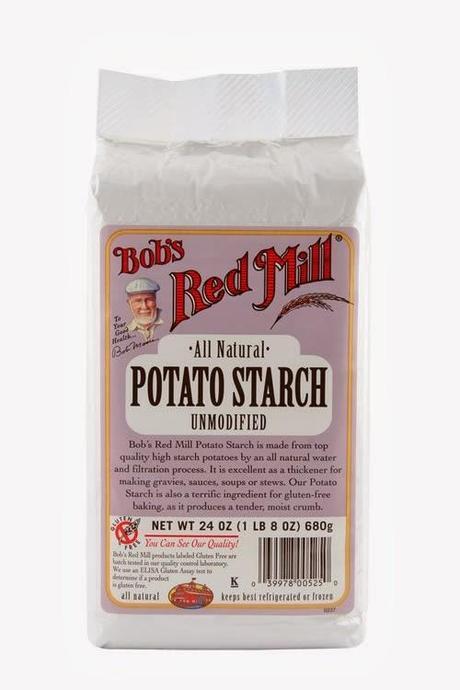
Low-Carb High-Fat
Is potato starch LCHF? Could it lower your blood sugar? Incredibly enough, the answer seems to be “yes” – if you don’t heat it.
The latest hot trend on health blogs is resistant starch. It seems to have positive effects on blood sugar, especially in type 2 diabetics. Perhaps it also makes you feel fuller and more satisfied, which could facilitate weight loss.
Even more speculative is that it may improve overall gut health, which potentially could be beneficial for those with an autoimmune condition.
It all sounds strange when you first hear about it. How can starch improve blood sugar – isn’t starch broken down to glucose, which raises blood sugar?
How It Works
The beauty of resistant starch is that it doesn’t break down to glucose. It isn’t broken down at all in the body, but instead it becomes food for the gut microbiome in the colon. The gut bacteria digest the resistant starch into short-chain fatty acids, which are absorbed by the body.
Therefore, resistant starch will not act as a carbohydrate. Instead, it is food for gut bacteria and what your body absorbs has been converted to fat.
Resistant starch is in reality LCHF – low carb, high fat – with food for the gut flora as a bonus.
Feeding the good gut bacteria – and the cells of the intestinal lining – seems to be able to affect hormone levels in the body (GLP-1 etc.), that in turn has an effect on blood sugar regulation and insulin sensitivity.
It seems also to be beneficial to ensure that gut bacteria and cells get adequate nutrition. Our ancestors no doubt did so, as there are plenty of sources of resistant starch in nature.
Do you want to try getting more resistant starch?
What To Do
The easiest way to eat a lot of resistant starch – free from regular starch – turns out to be cold potato starch. Not very yummy, but a couple of tablespoons stirred in water, per day, seems to be enough for a positive impact.
It may be wise to start with less and increase gradually to reduce the risk of a side effect: gas. Also note that you shouldn’t heat the potato starch – then it will be converted to regular starch that raises your blood sugar.
Those who are not carbohydrate sensitive – for example lean, healthy, exercising people – have more possibilities:
- Resistant starch – along with plenty of regular starch – are found for example in beans, lentils and peas.
- A lesser portion of the starch in a boiled potato or boiled rice is converted to resistant starch if it’s allowed to cool before being eaten.
- Raw potatoes or green, unripe bananas are also possibilities.
Conclusion
Resistant starch is a special form of fiber. It doesn’t raise blood sugar, but is converted to fat in the colon, while feeding good gut bacteria and the cells of the intestinal lining of your colon.
This may lead to positive effects on hormones from your gut. At least for some people, it seems it may improve blood sugar regulation. It may also provide more satiety and may potentially facilitate weight loss.
Especially for type 2 diabetics this is well worth trying. Many people have reported improved blood sugar levels.
Future science and experience will lead to more knowledge about who will benefit from resistant starch and how to best take it. Today, knowledge is still limited and it’s a good idea to try for yourself and see what effect you get.
Have you tried cold potato starch or other sources of resistant starch? Please let us know in the comments below.
More
Mark Sisson’s guide, including links to studies: The Definitive Guide to Resistant Starch
Richard Nikoley, Free the Animal: A Resistant Primer for Newbies
PS: The Danger of Resistant Starch
There’s a danger with discussions on resistant starch. The danger is that there are manufacturers ready to start promoting high-carb junk – bread, pasta, candy – with fairy tale promises that the carbohydrates are “resistant” or protected.
Like the decade-long story of Dreamfield’s pasta fraud shows, you can’t trust the people selling “low-carb” products. What is labeled as “resistant” carbohydrates in expensive, colorful packaging, may very well be a fraud:
The Dreamfields Pasta Fraud Finally Results in an 8 Million Dollar Fine!

